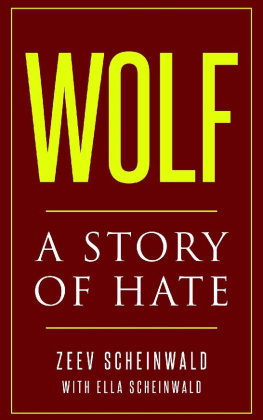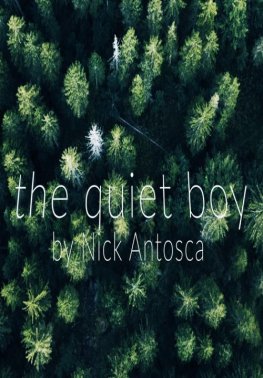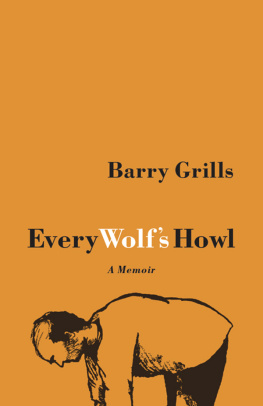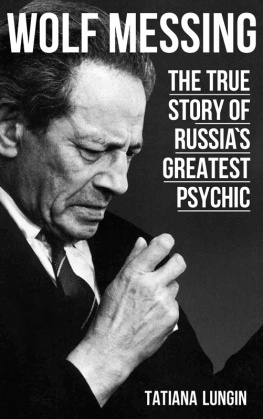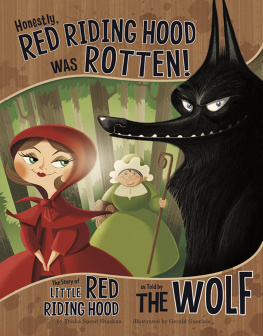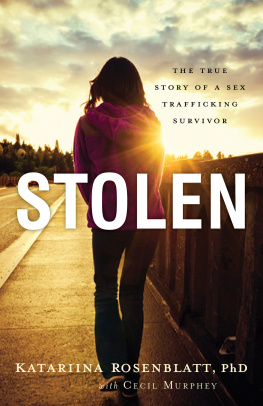Wolf. A Story of Hate by Zeev Scheinwald
All Rights Reserved. No part of this publication may be reproduced or transmitted in any form or by any means, electronic or mechanical, including photocopy, recording or any other information storage and retrieval system, without prior permission in writing from the publisher.
Preface
This is the biography of a murdered person.
He was murdered by normal people. By people who had wives, husbands, children, parents. People who were often nice and had the capacity to love.
But this is not just a story about the Holocaust, or one persons experience of it. This is a much bigger story, one that resonates with our times, that is relevant to all of us, today. It reverberates in how some countries are being led today, including modern cultures, democracies, as well as developed and underdeveloped countries. Among others, it is the story of how political and industrial leadership fails their own purposefully, by creating profound divisions filling peoples hearts and minds with hate beyond comprehension, with not an eye blinked by entire populations who have lost their moral compass, or are blindsided and ignorant to the point of indifference. When some blame Jews for going to the gas chambers like cattle, it is merely a projection of the behavior of most of the local non-Jewish population in Germany and its allies who ignored the plight and suffering of their countrymen and followed their own regimes like ignorant cattle. Even today, people often misconstrue their government as a body which defends the countrys own interests, when in fact, leadership itself reaps all the financial and political benefits.
This is the story of the relationship between government and corporations, alliances between regimes and businesses, marriages between politics and industries, and how innocent human beings get trapped in an evil circle of fanaticism, political polarization, manipulation of admiring masses, exploitation and divisiveness. Exploiting innocent people can quickly plunge into an abyss of hate and genocide.
These relationships do not only exist elsewhere. Germans were considered a highly cultured people before Hitler came to power. It did not take much to turn Germany, the Germans and their allies into a death enterprise. Hate was it.
In an article from the New York Magazine (January 6-19, 2020) entitled What will happen to the Trump Toadies? Look to Nixons defenders, and the Vichy collaborators, for clues, the writer Frank Rich says: More than half-century after V-E Day, researchers confirmed that Ford and GMs German operations had manufactured armaments for the Nazi war machine, sometimes with slave labor. Alfred P. Sloan, the longtime GM chairman, explained his philosophy: 'An international business operating throughout the world should conduct its operations in strictly business terms, without regard to the political beliefs of its management, or the political beliefs of the countries in which it is operating." He adds: Newly discovered documents, triggered in part by litigation on behalf of Holocaust survivors, would show, as the Washington Post put it, that in consultation with Gring, he was involved in the partial conversion of the principal GM automobile plant at Russelsheim to production of engines and other parts for the Junker Wunderbomber, a key weapon in the German air force.
While my father was not in a GM or Ford connected camp, he was used as slave in HASAG-owned camps, a company that had alliances with the murderous Nazi regime, turning it to a de facto death corporation. Hate became the medium through which everything was justified. Politics of hate, business of hate, genocide of hate they all spiraled down and snowballed to a state of collective hate trance.
My father Wolf, like millions of others, fell victim to this trance under the watchful eye of entire populations, businesses and politicians, all morally bankrupt and self-serving.
Imagine how much better the world would be if all these beautiful human beings were not victims of this mass murder.
I had to detach myself from the narrative when I edited and translated this biography. Yet, how could I deal with this kind of material knowing that every line has shaped my own life? Through the words, I got to meet part of the family I never had. I encountered little Bela, whose big, dark eyes often look at me at night. For a fleeting moment, I got to meet the grandparents, uncles and aunts I never had in life.
When I agreed to visit Poland for the first time in the early 1990s, I could only see a land where countless Jews are buried. Not because they died of natural causes, but because they were murdered. Poland is a big cemetery. Its soil is soaked with the blood of its Jewish citizens men, women, children and the blood has not yet dried on the hands of the perpetrators.
If my father had not accompanied me on this visit, I would have never found any memorial or sign of what had happened there.
The Poles achieved their dream: the land is Judenrein free of Jews but not free of antisemitism. It is still burning in their hearts and flows in many mothers milk.
I saw a land wooed by the worlds politicians and businesspeople, some even Jewish, hungry for money, ignoring an uneasy past for the sake of profit. I also saw a people capitalizing on their own collaboration by making those who experienced the camps pay to see them once more. Many asked me: why do you need to write all of this? Why are you still angry? Forget it, go on with your life.
Well, this is my life. I live with the Holocaust because I am a product of it. I agreed to do this work because my father asked me to. We wanted to listen to him, to understand and help him, but we could not make him happy. Even the presence of grandchildren has not made up for his losses and loneliness. He remained a shell of a person, a body emptied of joy and freedom through torture and death.
A murdered person.
Finally, while I may disagree with my father regarding certain opinions and conclusions relating to his writings, it does not come from a place of judgement or criticism, but rather it is based on the fantasy of a better and more caring world. It is crucial to remember that he was persecuted by the Nazis and their co-conspirators, and that his entire family and community were destroyed. Regardless, I remained completely loyal to what he asked me to write and to the translation of his manuscript.
I dedicate this book to my children, Ronen and Dana, with my deepest love and respect.
Ella Scheinwald

